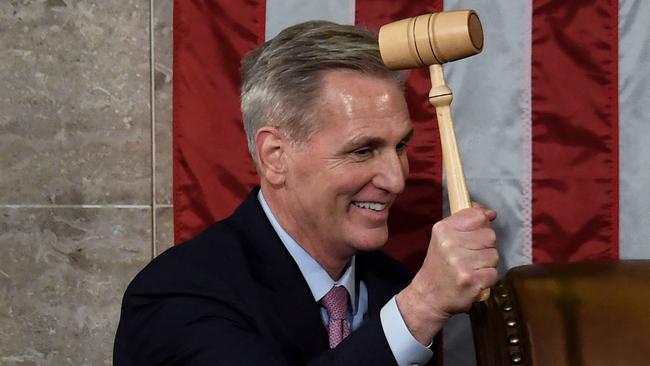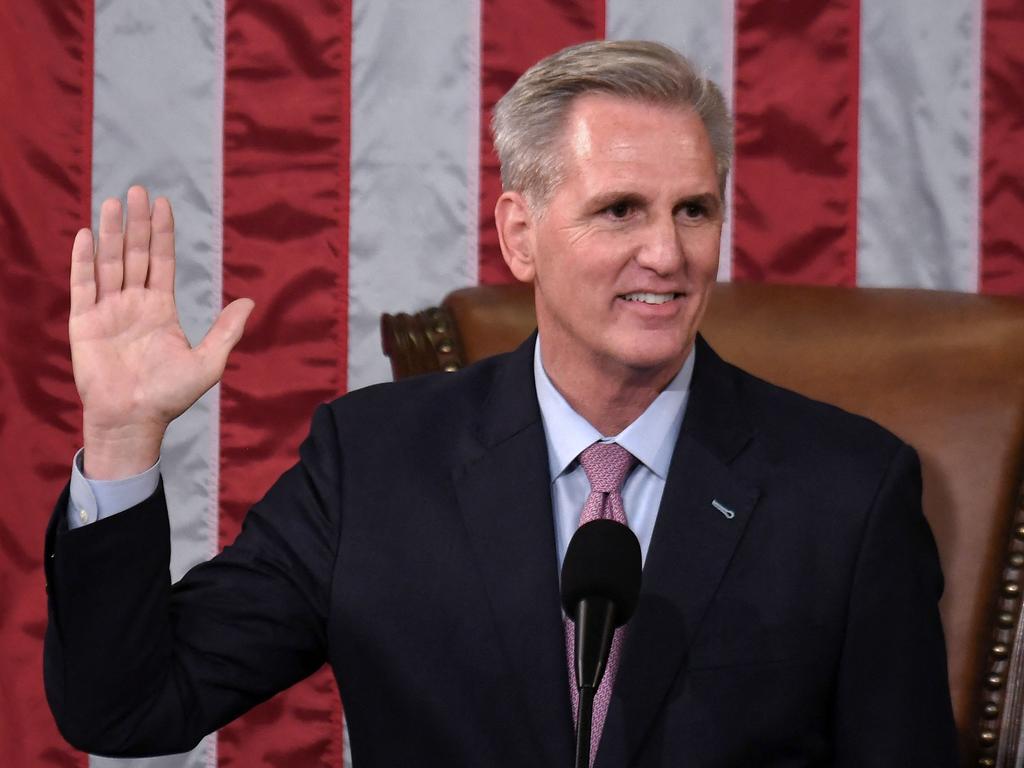Republican chief ‘the prisoner of rebels’ after deal to take control
After numerous concessions to become Speaker, Kevin McCarthy attempts to unite unruly Republicans behind sweeping package of rule changes.

Kevin McCarthy faces his first test today (Monday) after making numerous concessions to become speaker of the House of Representatives when he attempts to unite unruly Republicans behind a sweeping package of rule changes.
The showdown played out in public in the longest series of votes for a Speaker since 1860 as a small hard-right faction held out for more and more power in the new Congress before finally endorsing him on the 15th vote.
McCarthy, 57, a California congressman, will be governing in a “straitjacket that he is unable to evade”, said Matt Gaetz, a leading rebel congressman from Florida.
The agreements expected to be voted on today (Monday) include allowing just a single member of the House to demand a vote to remove the Speaker and placing several hard-right members on the powerful rules committee that decides which bills come to the floor.
Huge finance bills will be broken into smaller parts for votes and amendments, and will have to be available for scrutiny for at least 72 hours after the most recent dollars 1.7 trillion spending bill was rushed through in a day.
McCarthy also agreed to enforce tough fiscal measures, such as balancing the budget over ten years and approving new spending only in return for reductions elsewhere, which some of his own members said would require big cuts to the military budget or to welfare spending. Refusing to raise the US debt ceiling this year, as the House has always done to meet commitments, would put the country at risk of default.
Conservative Republicans hailed these moves as a democratisation of the House, giving more power to rank-and-file members, while Democrats said the “keys have been handed over to the extremists”. “When they talk about process, that is a smokescreen,” Katherine Clark, the Democratic whip, told CNN.
"When they talk about process, that is a smoke screen."
— CNN (@CNN) January 8, 2023
House Minority Whip Rep. Katherine Clark (D-MA) tells CNN's @jaketapper House Republicans are trying to distract the American public away from their legislative agenda. @CNNSotu#CNNSOTUpic.twitter.com/98g8sA3Ean
“They are going to use the debt ceiling as leverage to take American seniors hostage. They voted to raise the debt ceiling three times under the Trump administration. This is all about forcing us to make cuts to Social Security and Medicare . . . and to make sure that their billionaire buddies continue to thrive at the expense of hardworking American families.” Michael Waltz, a mainstream Florida congressman, said that a “balanced budget” was a key demand of many Republicans and not just the hard right.
“We need to get this spending under control,” he told Fox News. “The agreement that McCarthy made with some of these folks [the ultraconservatives] is that we would go back to 2022 numbers as a starting point. My problem with that is if we keep them the same as they were in 22, that would be a dollars 75 billion cut to defence spending. Even if we try to keep it level, then that means we’d have to then cut non-defence spending by 30 per cent.”
He said the Democrat-controlled Senate would never agree to such huge welfare cuts, “so there will be tremendous pressure on defence spending. And if you thought this stand-off [over the Speaker vote] was bad? No . . . We will not do this on the backs of our troops as we’re facing the most rapid military build-up from the Chinese Communist Party in modern history.” Ro Khanna, a senior Democrat, said that there would be support on his side for cutting the defence budget, suggesting that some left-wing Democrats could team up with the hard-right Republican budget-cutters. “There are places I may actually agree with Republicans on defence cuts,” he told Fox News Sunday.
“I mean, I think it is absurd that we’re going to have almost a trillion-dollar defence budget. And if they’re going to look at that and make certain cuts, then let’s have that conversation.”
The Times







To join the conversation, please log in. Don't have an account? Register
Join the conversation, you are commenting as Logout